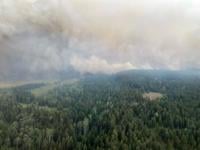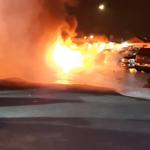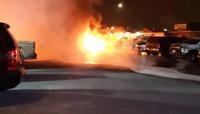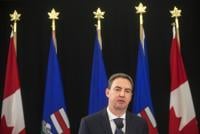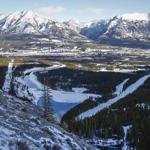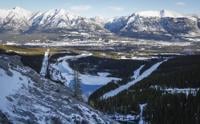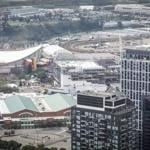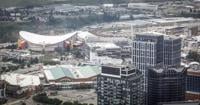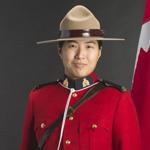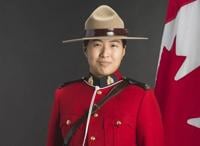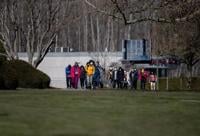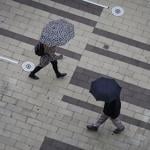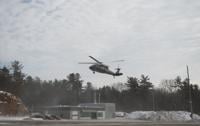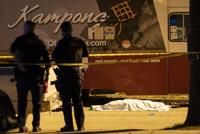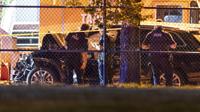VANCOUVER - Evacuation orders and alerts covering hundreds of properties in southern British Columbia were rescinded or downgraded Friday as fire crews fought back against wildfires that have ravaged the province.
Crews made good progress containing a wildfire about 10 kilometres south of Kamloops in the Thompson-Nicola Regional District, allowing residents of 327 evacuated properties to return home, although they remain under alert and must be ready to leave again on short notice.
The 26-square-kilometre Ross Moore Lake wildfire was sparked by lightning one week ago and forced the evacuation of properties from Lac Le Jeune to near the outskirts of Kamloops.
The regional district said 18 properties remained on evacuation order but the City of Kamloops ended its evacuation alert for the Knutsford neighbourhood, southeast of the city, as the BC Wildfire Service reported cleanup was underway on the flank of the fire nearest those homes.
The blaze was still listed as out of control, but guards were being built and an additional 40 firefighters were expected Friday to focus on areas needing cleanup and patrols.
Meanwhile, in B.C.'s southeast corner, the Regional District of East Kootenay announced that it was rescinding evacuation alerts on 667 dwellings that had previously been threatened by the St. Mary’s River Fire.
The fire is 46 square kilometres in size, but the district said Friday it was being held by firefighters.
"We are so grateful to the BC Wildfire Service for their tireless efforts throughout the past 12 days,” district information officer Loree Duczek said in a statement.
The wildfire service said 374 fires were burning across B.C. Friday afternoon, including 22 rated as highly visible or threatening "fires of note," but officials said just four new blazes were sparked in the previous 24 hours.
The Regional District of Bulkley Nechako also rescinded an evacuation alert and two evacuation orders that had been in place for nearly three weeks.
The wildfire service said the 83-square-kilometre wildfire burning near Andrews Bay that prompted those warnings was still considered a fire of note, but no evacuation alerts or orders remained.
The service said the area has received significant rain throughout the past week and significant fire growth is not expected in the next week.
The district also rescinded an evacuation order and alert for the nearby Pinkut Lake Wildfire, which was 58 square kilometres in size, as well as all restrictions for the 67-square-kilometre Parrot Lookout fire south of Burns Lake.
Despite recent rain and cooler weather pushing the wildfire danger rating down over large parts of B.C., forecasters say another hot spell is due next week and warn the rain has not significantly improved the extreme drought conditions gripping most of the province.
Concern about the incoming hot and dry weather prompted Metro Vancouver to announce Stage 2 watering restrictions, beginning next Friday.
George Harvie, chair of the organization that acts for roughly two dozen local governments and First Nations on the inner south coast, said use of treated drinking water remains higher than average among Metro Vancouver's residents.
"We are taking this proactive step to ensure that our region’s 2.8 million residents will have enough drinking water for essential uses for the rest of the dry season,” Harvie said in a statement.
Stage 2 restrictions prohibit all lawn watering.
Since the beginning of May, water consumption across the region has been about 20 per cent higher than last year, Metro Vancouver said, with residents using more water every single day compared with 2022.
Under Stage 2, lawn watering and sidewalk or driveway cleaning is not allowed, and water features such as fountains can't be filled or topped up.
But vegetable gardens can be watered at any time, and trees, shrubs, and flowers can be watered by hand or by using soaker hoses or drip irrigation at any time, or by using a sprinkler between 5 and 9 a.m. on any day, the district said.
Stage 1 watering restrictions began in May across Metro Vancouver and in much of B.C., limiting days and hours that lawns can be watered.
This report by ��ɫtvwas first published July 28, 2023.


